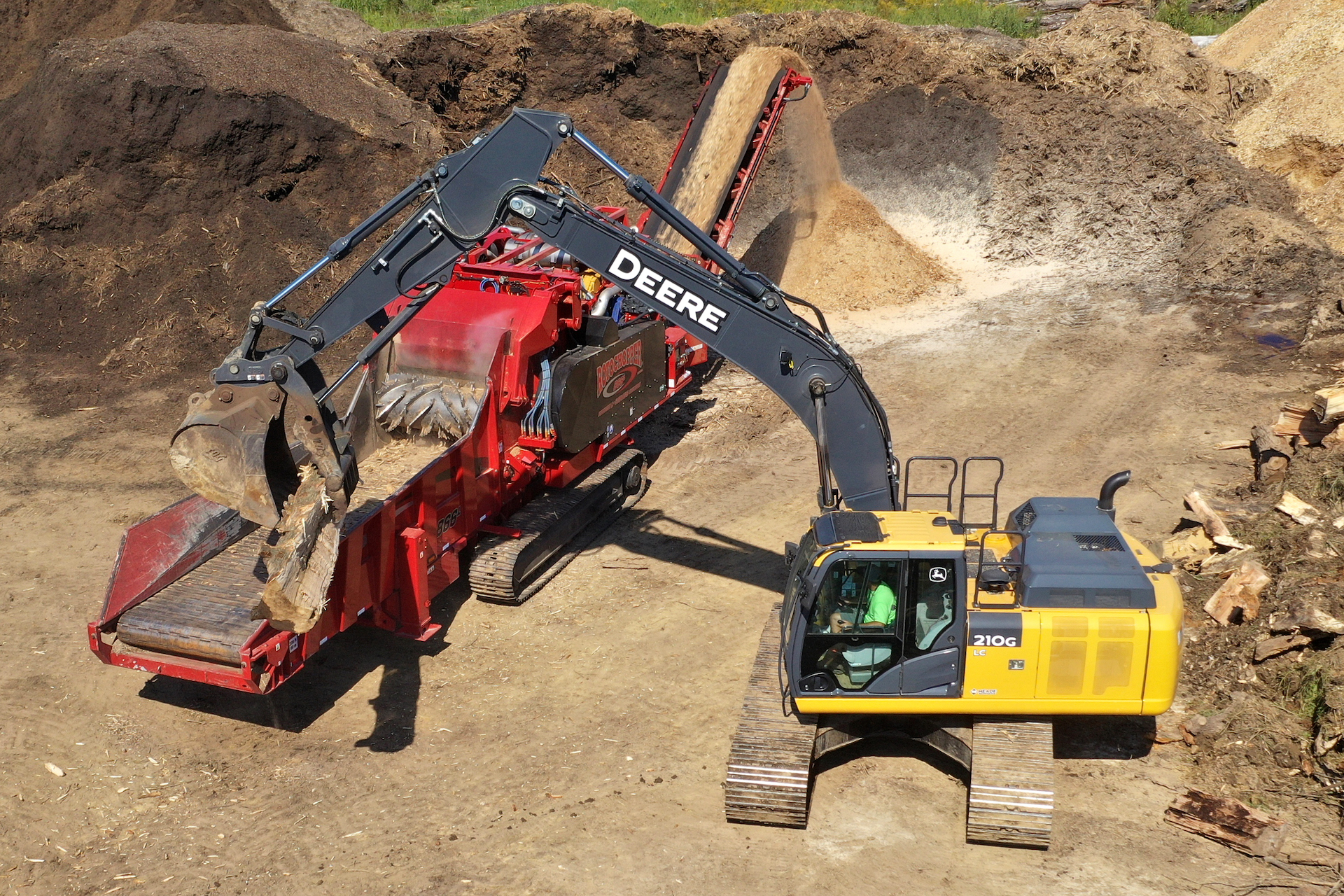
In any grinding operation, horizontal grinder operators play a vital role. Not only do they help set the standard for safety when using horizontal grinding equipment, but they also play a large part in determining the company’s productivity. By utilizing best practices for both safety and efficiency, horizontal grinder operators help ensure the operation is functioning at its best.
Best Practices for Safety
As always, horizontal grinder operators should be equipped with proper personal protective equipment. This includes safety glasses, a hard hat, high-visibility clothing, gloves, and hearing protection. Avoid loose, baggy clothing, and keep long hair tied back.
Grinder operators should be constantly aware of their surroundings, watching for other workers or machinery around them. They should also have knowledge of the potentially hazardous points on or near the grinder, like exposed belts or hot surfaces. As with any worker on the job site, horizontal grinder operators need to be trained in proper fire prevention protocols.
Best Practices for Maximizing Productivity
When horizontal grinder operators work efficiently, it lowers the company’s operating costs and, in turn, boosts uptime and profits. Cutting idle time is an easy way for grinder operators to lessen wasted profit. When the horizontal grinder isn’t in use, shut it down and save the fuel.
When it comes to prioritizing safety, feeding your horizontal grinder mechanically is the best option. Whether you use a loader, excavator, or forklift, loading mechanically minimizes the amount of human interaction with the machine, which, in turn, reduces the risk of an accident. Additionally, by operating and loading the horizontal grinder simultaneously, grinder operators further boost the company’s efficiency and uptime.
Like any machine, horizontal grinders require maintenance. Handling seemingly small malfunctions prevents them from turning into bigger problems. Large repairs may be costly to fix or force you to stop your operation for an extended period—either way, profits drop. Staying up to date with preventative maintenance tasks is a great solution. By replacing wear parts before they are no longer effective, grinder operators can avoid lapses in uptime.
At Rotochopper, we help horizontal grinder operators make preventative maintenance a priority. With our Preventative Maintenance Program, you can schedule grinder checkups at regular intervals. As a factory-direct company, Rotochopper service technicians have the expert knowledge to address small problems before they can further compromise the health of your horizontal grinder. We consistently stay up to date with best practices for horizontal grinder operation, and we’re happy to share that knowledge with operators during our visits.
To learn more about Rotochopper’s Preventative Maintenance Program, contact us online, or schedule a visit today.
